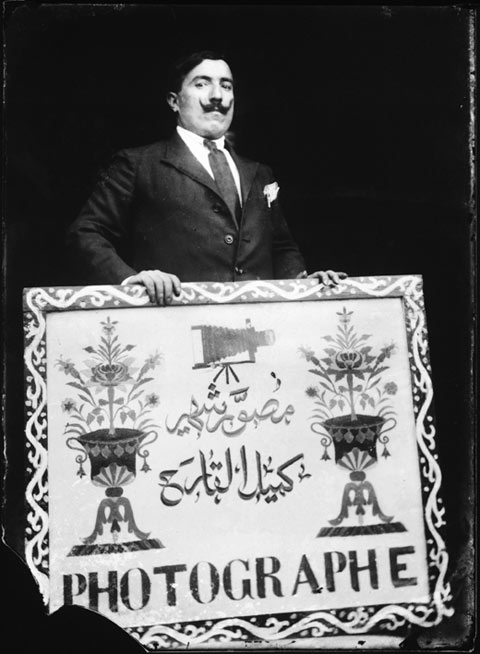
Self-portrait by photographer Camille el Kareh, taken in Lebanon in the 1920s. Arab Image Foundation/Mohsen Yaminne Collection. Photo © Arab Image Foundation
We treasure our family photos because they are reminders of meaningful memories. The same can be said of the photographic collections held by institutions, for they represent who we are and where we have been.
When photographs become damaged or lost—whether an institutional collection or the photographic heritage of an entire country or region—we lose a tangible reminder of the memories they embody. The loss or destruction of these resources can also have serious implications for our collective history.
In the Middle East, awareness of the importance of preserving photographic collections has grown in recent years. Along with this new awareness comes the recognition of the need for more information about these collections and for local expertise in the preservation of this heritage to secure it for future generations.
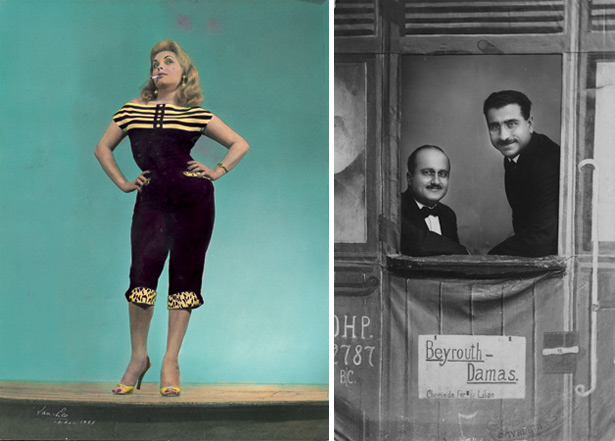
Left: Lady who came with Hussam El-Dine Mustafa for a screen-test – Rollei films in Egypt, Cairo, 1957. Photo: Van Leo / Van Leo Collection © Arab Image Foundation. Right: Albert Khayat posing with a friend in a painted set-up of the DHP train. Lebanon, Beirut, 1930. Photo: Jules Lind / Georges Khayat Collection. Photo © Arab Image Foundation
The Getty Conservation Institute has joined with the Arab Image Foundation, the Art Conservation Department of the University of Delaware, and the Metropolitan Museum of Art to address these issues. Together we have formed the Middle East Photograph Preservation Initiative (MEPPI) with a program to identify and assess photographic collections in the Middle East—from North Africa and the Arab Peninsula through Western Asia. MEPPI will also provide training opportunities for local professionals and work towards raising the visibility of the collections.
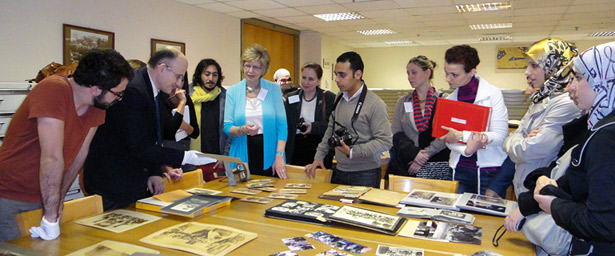
MEPPI course in Beirut, Lebanon. Photo: Tram Vo
Three courses will be offered through MEPPI, and the first was a training workshop in Beirut last November. Participants from eight different countries—Egypt, Iran, Iraq, Jordan, Lebanon, Morocco, Palestine, and Syria—were introduced to key concepts and practices in the identification, preservation, and display of photographic material. The workshop also provided an opportunity to network with other professionals from the region and learn about other collections.
Participants are now in the distance mentoring part of the course, which consists of self-study with mentors. Throughout an eight-month period, they will remain in contact with the instructors, who provide advice, guidance, and additional information to assist them in their work with their collections. During this phase the participants also have projects to be carried out in their own institutions.
The first assignment was to raise awareness and support for the photographic collections within their respective institutions through presentations for colleagues and decision makers.
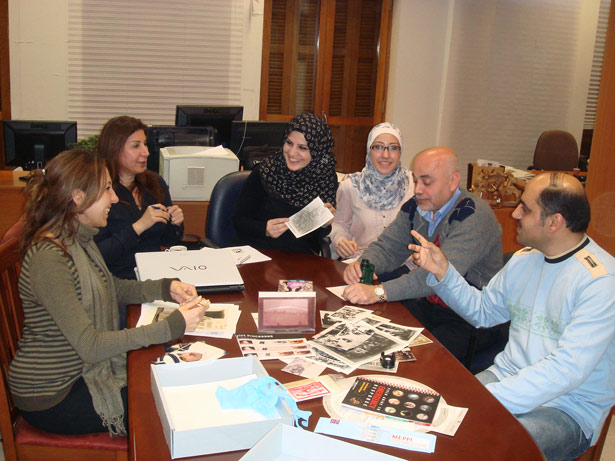
MEPPI Beirut participant giving a presentation to colleagues about the workshop and the distance-mentoring assignments.
A number of participants reached out to an even broader, more public audience. Mohammadreza Tahmasebpour, an independent researcher from Iran, shared a selection of images from the Golestan Palace Museum archives and other private collections through a moderated online slideshow on the Internet. Clare Davies from the Qasr el Boubara Institute for Historical Research in Egypt, and Ibrahim Abdel-Fattah from the Grand Egyptian Museum, presented a public lecture earlier this year at Contemporary Image Collective in Cairo on Egypt’s photographic heritage.
The next assignment is to conduct a survey of the environment and housing conditions for an institution’s photograph collection. In September a final follow-up meeting will take place in Morocco, which will allow instructors and participants to review the progress made over the previous months.
The second of the three courses that are being offered through this initiative will start in November in Abu Dhabi. Applications for MEPPI Abu Dhabi 2012 are now available to all qualified personnel from the region, with a deadline of May 27, 2012.


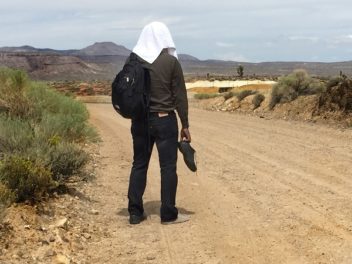

Comments on this post are now closed.